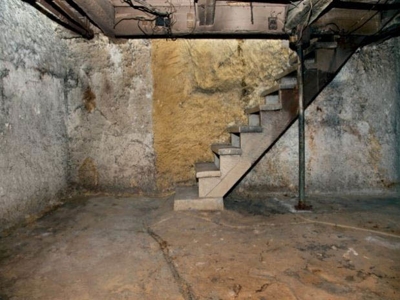
A musty odor in your basement can spread and start to affect other areas of your home. Furniture, clothes, documents, carpets and more can absorb and retain a musty smell, making it unpleasant and even unbearable to stay in your home. The worst part? Musty smells indicate the presence of mold, which can cause serious health and safety issues. But, there are ways that you can address the underlying causes and get rid of musty smells in your basement.
Causes of Smells In Basements
There are countless reasons why a basement may smell. Let's take a look at some of the most common reasons:
- Mold and mildew - Most musty smells in basements are caused by mold or mildew, as they both thrive in dark and damp locations. Not only do they smell, but they can cause damage to your home and cause health problems if left long enough.
- Animals - Rodents and other nocturnal animals love to make basement crevices their homes. Their waste and urine are a major cause for smell. Not only that, when these animals die in the walls or small corners, foul odors are emitted.
- Sewage - Sewage can cause an unplesantodor, but they are usually distinctive from other smells. Sewage odors are typically caused by plumbing issues, so it's important to make an appointment with a plumber to ensure everything is running smoothly.
How to Get Rid of a Musty Smell In Your Basement
It's essential to keep your basement free of musty odors and the presence of mold to maintain a healthy home. If you smell mold in your home, follow these steps to assess the extent of the problem and create a plan for removal:
1. Check for condensation and water leaks. If you see any kind of water leak, stop it immediately to protect the integrity of your home's foundation and prevent water damage to your house and belongings. If the pipes in your basement show signs of condensation, wrap them with insulation to reduce the moisture that perpetuates musty odors.
2. Dry out the basement. It's critical to dry out your basement. Use dehumidifiers to remove moisture from the air. If your basement has windows, keep them open for a few hours and use a fan to circulate fresh air into the room. Even without windows, you can try opening the basement door and placing a fan downstairs to increase air circulation.
3. Kill the mold. You may be surprised to learn that undiluted white vinegar has the ability to kill some mold spores. Wearing protective gear to prevent contact with the spores, pour straight vinegar into a spray bottle and heavily mist all affected areas. Keep windows open with air circulating, and let the mixture dry to help prevent continued mold growth.
4. Clean the air. You can freshen the air after mold removal in a number of ways listed below.
How to Clean Musty Air
Once you've identified and addressed any condensation, leaks and other sources of moisture in your basement and thoroughly cleaned and dried the areas with mold growth, your basement should smell fresh again. After mold removal, freshen the air to get rid of the musty smell by using the following:
- Cat litter - Put cat litter in open containers throughout the basement. When changed regularly, the litter will absorb most of the musty smell in your basement.
- Baking soda - Like cat litter, baking soda can absorb the majority of musty smells. Baking soda can maintain absorbency for up to 3 months, depending on how strong the odor in your home is.
Turn To The Experts For Help
Protect your home and health from damaging mold infestations by reaching out to home mold removal experts like ServiceMaster Restore. We can check your basement to find the source of the musty smell and address the root of the problem. If the musty smell in your basement came from flooding in your home we can help you quickly and carefully get you back to normal.
Call the experts at ServiceMaster Restore at 1-800-RESTORE or reach out to the nearest ServiceMaster Restore location near you.
0 Response to "how to get rid of musty basement smell"
Post a Comment